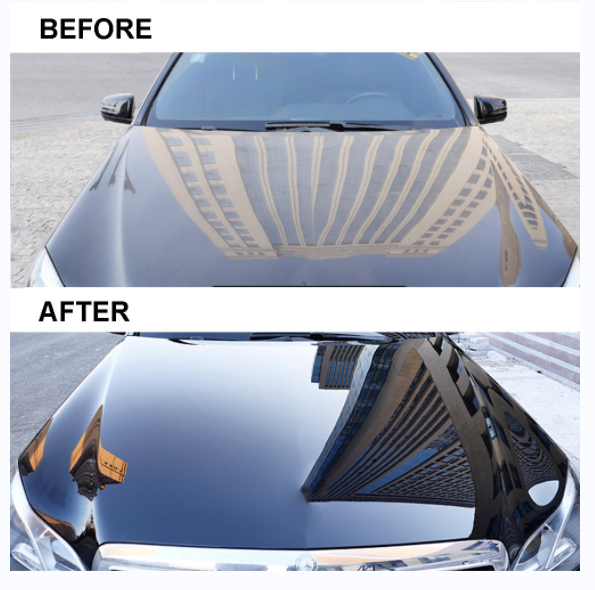Get expert car detailing for a deep clean.
Get expert car detailing for a deep clean.
Blog Article
A Comprehensive Overview to the Types of Ceramic Layer on the Market
Ceramic coverings have emerged as a crucial solution across different sectors due to their unique properties and applications. As we check out the distinct attributes and applications of these coverings, the ramifications for efficiency and long life come to be significantly evident, increasing inquiries regarding which type might finest suit your requirements.
Recognizing Ceramic Coatings
Ceramic coverings are innovative protective solutions that have actually gotten appeal in numerous sectors, particularly in auto and aerospace applications. These coatings contain a liquid polymer that, when cured, forms a resilient, hydrophobic layer on the surface area of the substrate. This layer gives boosted resistance to environmental impurities, UV radiation, and chemical direct exposure, consequently extending the life and aesthetic charm of the underlying product.
The fundamental part of ceramic layers is silica, which adds to their firmness and durability. The application procedure typically includes surface area preparation, application of the layer, and curing, which can be accomplished with heat or UV light. When treated, ceramic layers exhibit exceptional bonding homes, permitting them to stick strongly to a variety of surfaces, including steels, plastics, and glass.
Along with their protective features, ceramic layers also offer convenience of maintenance. Their hydrophobic nature minimizes the adherence of dirt and gunk, making cleaning less complex and much less frequent. On the whole, the fostering of ceramic finishes represents a significant improvement in surface security innovation, offering both functional and visual advantages throughout several fields.
Kinds Of Ceramic Coatings
Numerous sorts of ceramic finishings are available, each developed to satisfy specific efficiency demands and applications - Paint Protection Film. One of the most common kinds consist of:
Silica-based Coatings: These coverings mostly include silicon dioxide and are recognized for their sturdiness and chemical resistance. They are commonly used in vehicle and commercial applications.
Titanium Dioxide Coatings: Popular for their photocatalytic properties, titanium dioxide finishes are often applied in atmospheres where self-cleaning and antifungal buildings are desirable, such as in building materials and automobile surfaces.
Zirconia Coatings: Defined by their high-temperature security and thermal resistance, zirconia finishings are used in applications such as turbine engines and high-performance auto elements.
Alumina Coatings: Displaying excellent hardness and thermal stability, alumina layers are frequently made use of in wear-resistant applications, including reducing tools and industrial equipment. - Car Detailing
Hybrid Coatings: Incorporating the buildings of numerous materials, hybrid finishes use boosted efficiency qualities, making them suitable for one-of-a-kind and requiring applications.
Each kind of ceramic finishing offers distinctive objectives, permitting users to choose one of the most proper remedy based on certain ecological problems and performance web requirements.
Advantages of Ceramic Coatings
Coatings play a vital function in improving the performance and longevity of surface areas across numerous industries. Ceramic coverings, in certain, offer countless benefits that make them a fantastic read increasingly prominent amongst makers and consumers alike. Among the primary advantages is their exceptional sturdiness. These coatings are immune to scrapes, chemicals, and UV rays, guaranteeing that the underlying surface stays protected with time.
Along with sturdiness, ceramic coatings supply outstanding hydrophobic homes, permitting easy cleansing and maintenance. This water-repellent nature lessens the adherence of dirt, grime, and various other pollutants, which can prolong the visual charm and capability of the surface. Ceramic layers can dramatically boost thermal resistance, making them excellent for applications that withstand high temperature levels.

Application Refine
When using ceramic coatings, a meticulous approach is important to attain optimal results. A clean surface makes certain proper attachment of the finishing.
When the surface area is prepped, the next step is to use the ceramic finishing. The finishing ought to be applied in thin layers, as thicker applications can lead to uneven coatings.
After application, the covering needs a particular healing time, normally ranging from a few hours to a complete day, depending on the item. Complying with these steps faithfully will take full advantage of the performance and long life of the ceramic coating, supplying a resilient safety layer for the surface area.
Maintenance and Durability
To ensure the longevity and effectiveness of a ceramic covering, routine upkeep is necessary. Ceramic finishes, known for their longevity and protective top qualities, need specific treatment routines to maximize their life expectancy and efficiency.
Along with normal cleaning, regular examinations are crucial. Try to find signs of wear or damage, such as hydrophobic residential or commercial properties decreasing or surface area imperfections. If essential, a light gloss might be put on revitalize the coating without stripping it away.
Additionally, the application of a booster spray can boost the finish's hydrophobic impacts and recover its gloss. This is especially useful for coverings that have actually been in use for an extensive duration. Ultimately, by sticking to these maintenance techniques, one can significantly expand the life of a ceramic finish, making sure that it continues to provide ideal protection against environmental elements and keep the aesthetic charm of the car.
Conclusion

Report this page